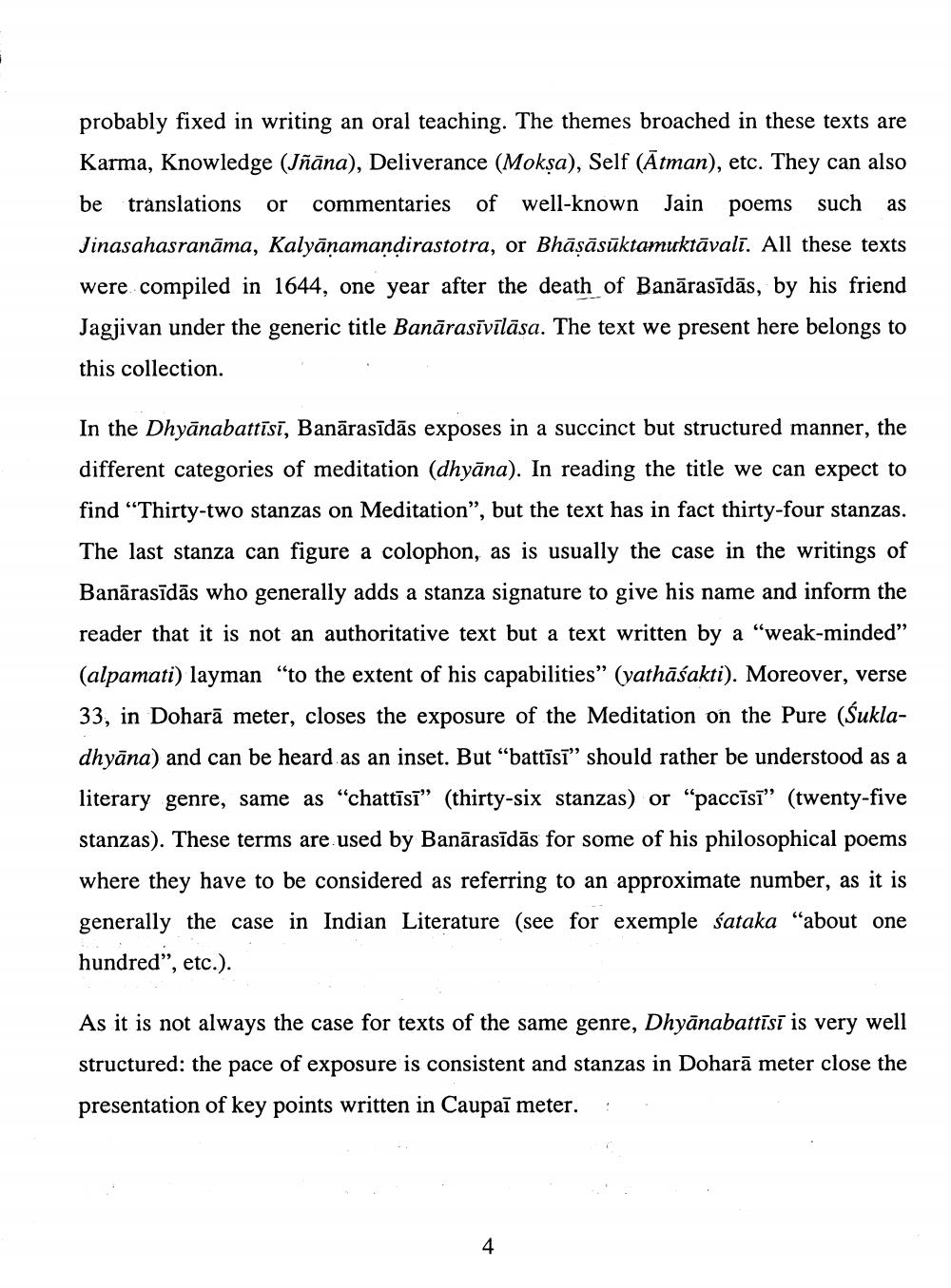Book Title: Dhyana Battisi Author(s): Jerome Petit Publisher: Hindi Granth Karyalay View full book textPage 8
________________ probably fixed in writing an oral teaching. The themes broached in these texts are Karma, Knowledge (Jñāna), Deliverance (Mokșa), Self (Ātman), etc. They can also be translations or commentaries of well-known Jain poems such as Jinasahasranāma, Kalyāṇamandirastotra, or Bhāṣāsūktamuktāvalī. All these texts were compiled in 1644, one year after the death of Banārasīdās, by his friend Jagjivan under the generic title Banārasīvīlāsa. The text we present here belongs to this collection. In the Dhyānabattīsī, Banārasīdās exposes in a succinct but structured manner, the different categories of meditation (dhyāna). In reading the title we can expect to find “Thirty-two stanzas on Meditation”, but the text has in fact thirty-four stanzas. The last stanza can figure a colophon, as is usually the case in the writings of Banārasīdās who generally adds a stanza signature to give his name and inform the reader that it is not an authoritative text but a text written by a "weak-minded” (alpamati) layman “to the extent of his capabilities” (yathāśakti). Moreover, verse 33, in Doharā meter, closes the exposure of the Meditation on the Pure (sukladhyāna) and can be heard as an inset. But "battīsī” should rather be understood as a literary genre, same as "chattīsī” (thirty-six stanzas) or “paccīsī” (twenty-five stanzas). These terms are used by Banārasīdās for some of his philosophical poems where they have to be considered as referring to an approximate number, as it is generally the case in Indian Literature (see for exemple śataka “about one hundred”, etc.). As it is not always the case for texts of the same genre, Dhyānabattīsī is very well structured: the pace of exposure is consistent and stanzas in Doharā meter close the presentation of key points written in Caupaī meter.Page Navigation
1 ... 6 7 8 9 10 11 12 13 14 15 16 17 18 19 20 21 22 23 24 25 26 27 28
